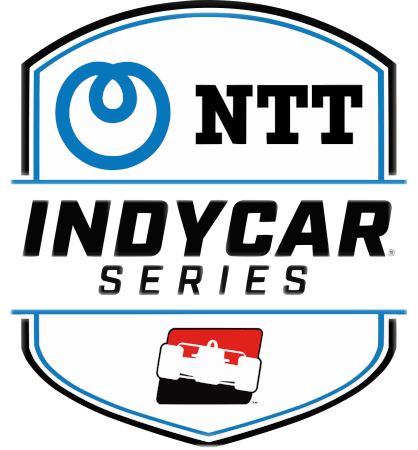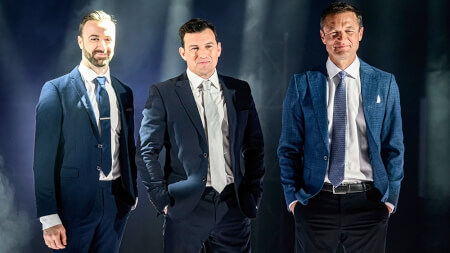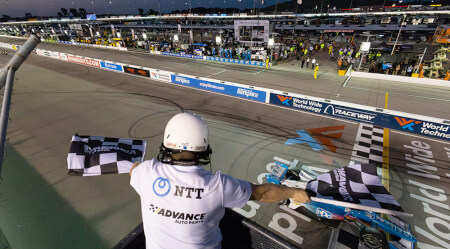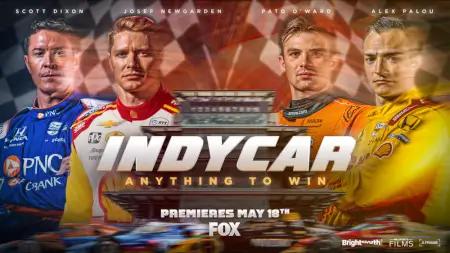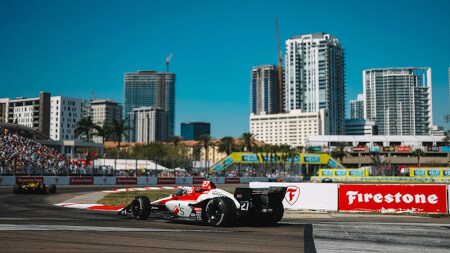April 11th 2025
Penske considering financing plan for new IndyCar chassis
IndyCar Series teams are bracing for a wave of new-car costs whenever Penske Entertainment and its chassis partners at Dallara introduce the successor for today’s DW12 chassis. With the need to source millions of new-car dollars on top of the yearlong operating costs for the current one, the impending financial outlay coming to the IndyCar paddock — especially for those without sizable cash reserves — has led to some creative thinking within the series’ executive wing.
The goal of bringing the new chassis to market as early as 2027 means IndyCar teams would need to place deposits for multiple cars in 2026 and pay the remainder of the balance before receiving the cars in approximately 18 months.
Annual budgets for each IndyCar entry have crept up to an average that falls between $8-10 million, which has become a challenge for some teams to secure. If the 2027 projection holds, some teams could struggle to absorb the parallel costs to compete while paying for the technological changeover in the same season.
RACER has learned of a team-friendly plan being considered where Penske would shoulder those new-car costs, for those who are interested, and spread the reimbursement over multiple years to alleviate the financial burden. If the idea becomes a reality, team owners would enter into loan and repayment agreements with the series’ owner. The idea is still at an early stage, and some of the finer details have yet to be defined.
With teams able to acquire bank loans of their own, there’s an assumption the Penske plan would come with a more favorable interest rate. There’s also a question of whether the offer would only extend to the 10 teams holding Penske-issued charter agreements, or if it would cover non-charter entrants like PREMA Racing, Dreyer & Reinbold/Cusick Motorsports, and Abel Motorsports.
An early version of the concept presented in an owners’ meeting last October involved Penske financing the first new chassis purchased by its teams, but the latest iteration is said to extend to multiple cars — or all of the new equipment, if asked — to ease the transition.
Although the idea is only a concept at this point, Penske Entertainment CEO Mark Miles says that if it were to happen, it would involve direct dealings with Penske rather than engaging a bank to arrange loans for teams on behalf of the series.
“The first thing when I think about this whole topic is, getting the new car available to do all the things that we think it can do for us,” Miles told RACER. “The second thing is managing cost, the absolute cost of a new car, and finally, is financing it or making arrangements so that the teams can manage it. We haven’t had any conversation about a third-party bank. So some kind of financing is something that we’re giving some thought to.”
Ed Carpenter Racing co-owner and driver Ed Carpenter is waiting to hear more about the plan before weighing in on its potential value.
“It does sound interesting,” he said. “They brought it up in the (October) meeting, but I need to learn more about what they’re thinking of now and how it might work.”
More than any other team, Dale Coyne Racing — IndyCar’s smallest outfit — would appear to be the perfect candidate for a Penske-led financing program. But according to Coyne, that would be an incorrect assumption.
“I can go to my bank and get a loan for three years and go buy three cars,” he said. “It doesn’t have a drop of value to me, and it should be more valuable to me than anybody. But you still have to spend the money.”
As Penske gets a clearer picture of the new car’s timeline, technological composition, and cost, a call will be made on moving forward with or tabling the financial assistance proposition.
“No matter how well-managed the overall cost is, you’ve got two or three cars and you got backups,” Miles said. “It’s a big number.”
For more information: www.racer.com
For more Industry News, please Click Here
For more information: www.racer.com
For more Industry News, please Click Here
